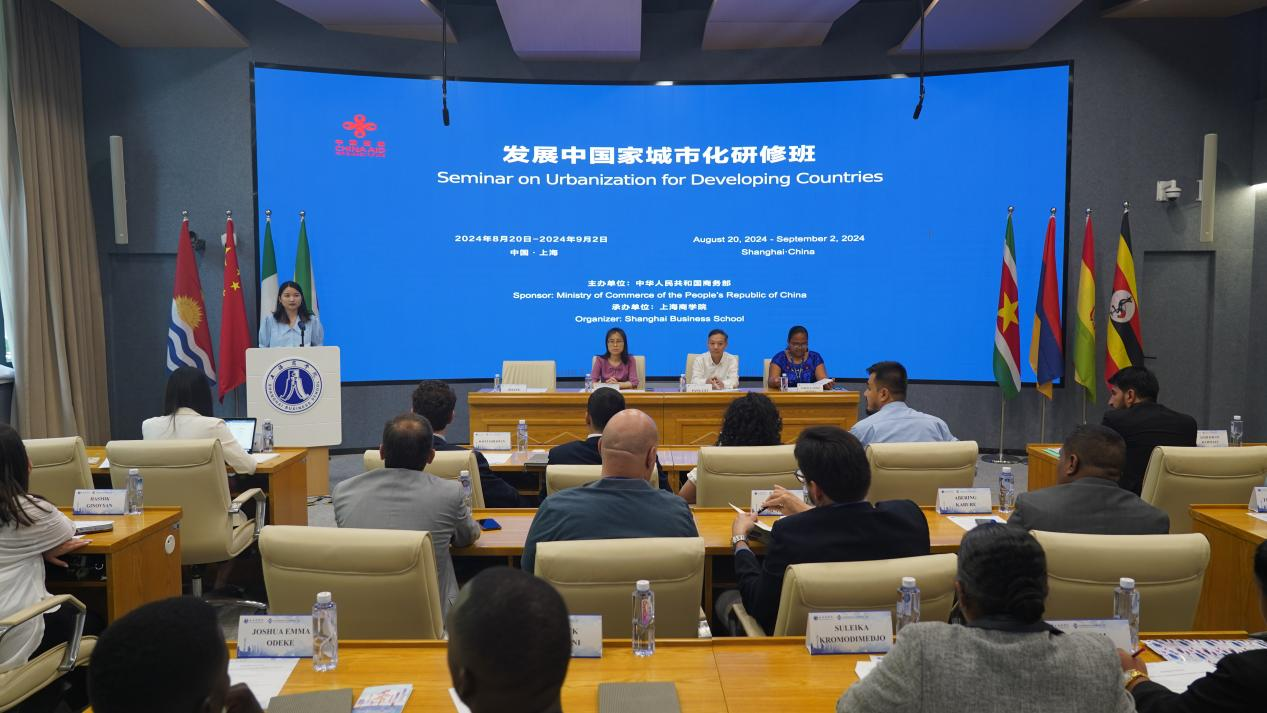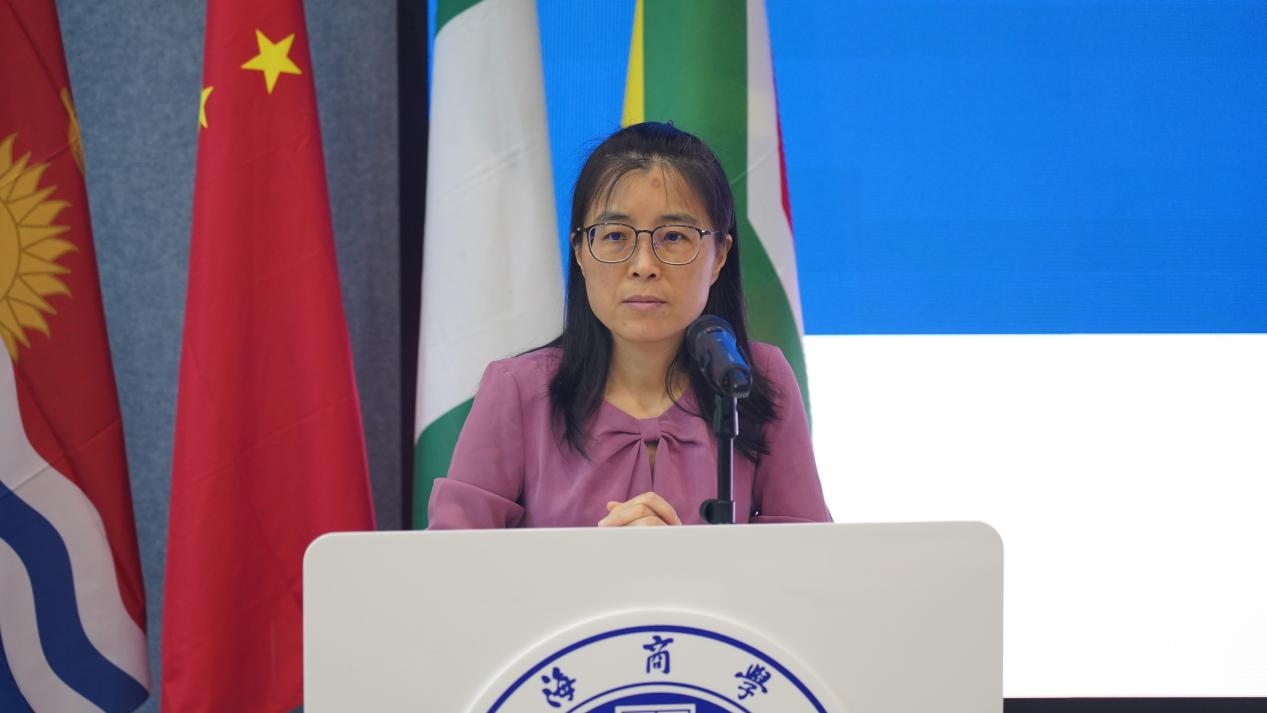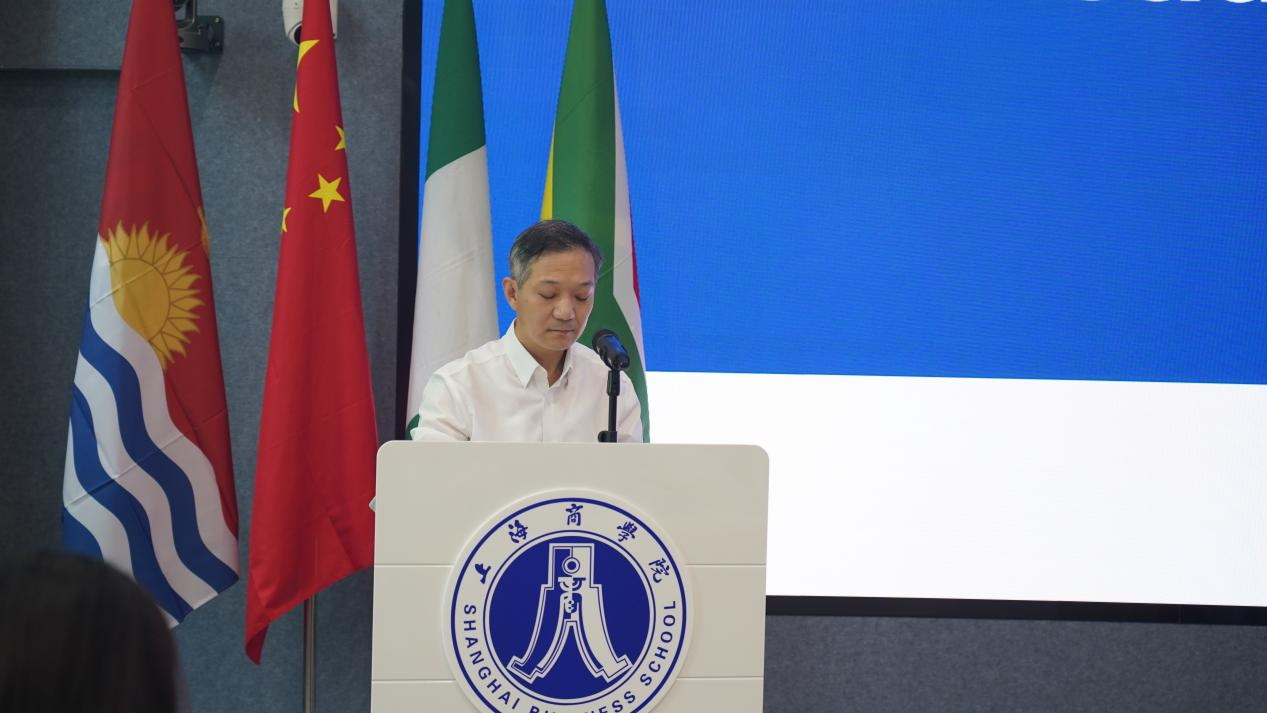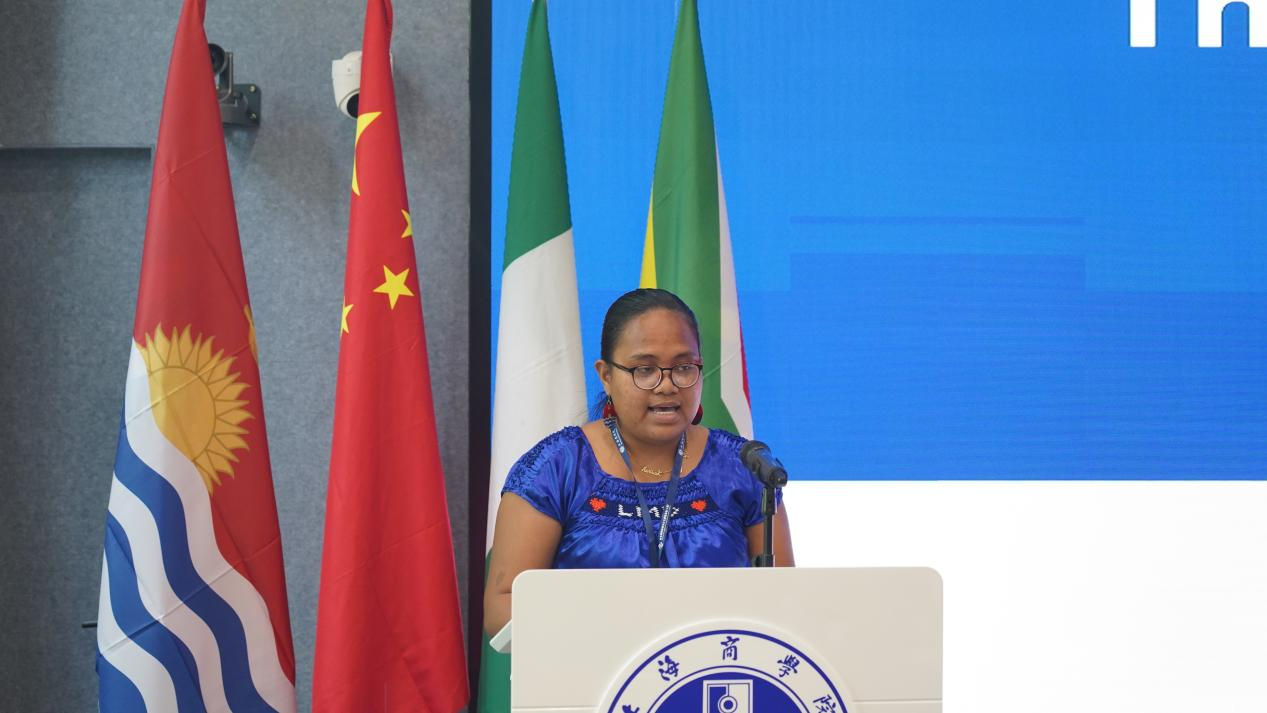On the morning of August 20, the opening ceremony of the Seminar on Urbanization fro Developing Countries, sponsored by the Ministry of Commerce and hosted by the MOFCOM Training Base for International Business Officials (Shanghai) at Shanghai Business School, was successfully held. The event was honored by the presence of Dai Ying, Deputy Director of the MOFCOM Training Base for International Business Officials (Shanghai), and Associate Professor Pang Lei from the College of Architecture and Urban Planning at Tongji University, both of whom delivered insightful speeches.

Since the 20th century, global urbanization has accelerated rapidly. With the rapid expansion of information networks, the global movement of capital and labor has intensified, leading to large-scale urbanization across the world. Urbanization has played a pivotal role in driving China’s economic growth. As China now enters a critical phase of bridging the urban-rural divide and accelerating new urbanization, it is essential to adhere to a people-centered development approach. By vigorously promoting new urbanization, the benefits of development can be more equitably shared, better meeting the people’s growing aspirations for a better life.

Dai Ying highlighted that while developed countries have entered a post-urbanization phase, many developing nations are still transitioning from initial urbanization to rapid development. She reviewed the three phases of China’s urbanization since the reform and opening up, emphasizing the significant achievements made during this period. Dai expressed her hope that the seminar would serve as a platform for exchange and cooperation, advancing the urbanization process in participating countries and offering new development opportunities to enhance the well-being of people worldwide.

Pang Lei emphasized that urban-rural integration is a key development goal for developing countries. Achieving this requires a balanced approach to living space, production space, and ecological space, ensuring the free and efficient flow of production factors and forming a rational layout of urban and rural productivity. Over the past two decades, China has accumulated extensive experience in urbanization by consistently promoting the deep integration of informatization and industrialization, fostering positive interactions between industrialization and urbanization, and ensuring the coordinated development of urbanization and agricultural modernization. Pang expressed confidence that China’s experience would provide valuable insights for the seminar participants.

On behalf of all the participants, Ms. Tabita Kaitamakin Awira Awerika, Chief Land Planning Officer from the Department of Environment, Land, and Agricultural Development of Kiribati, expressed gratitude to the government and people of China, as well as the host, Shanghai Business School. She noted that many developing countries face the dual challenges of limited land space and rapid population growth. She believed that the seminar would help participants enrich their professional knowledge and experience related to urbanization and explore effective ways to address these challenges.
The Seminar on Urbanization fro Developing Countries lasts for 14 days, with 27 participants from seven countries, including Afghanistan, Armenia, Bolivia, Kiribati, Nigeria, Suriname, and Uganda. The seminar will also feature a field visit in Huangshan City, Anhui Province.
Written by: Liang Bo
Photos by: Li Zheng
Reviewed by: Chen Wei